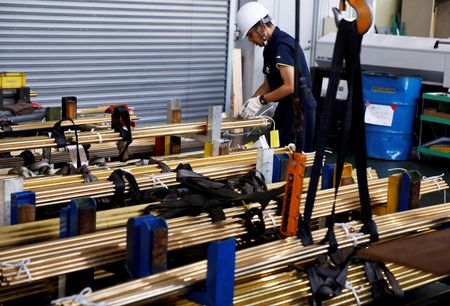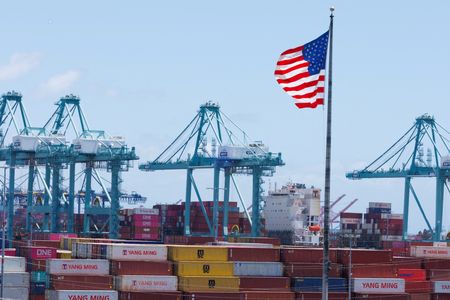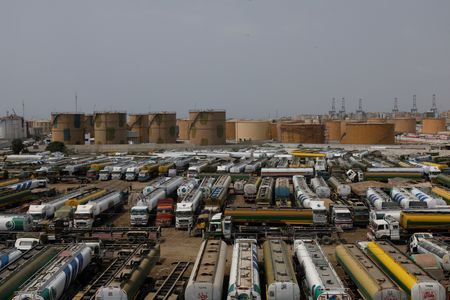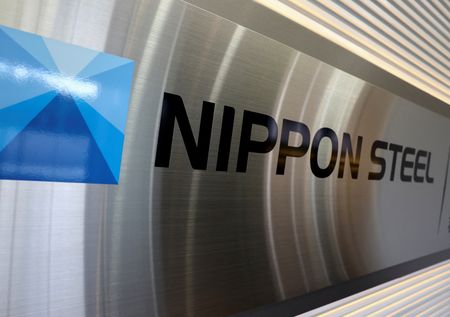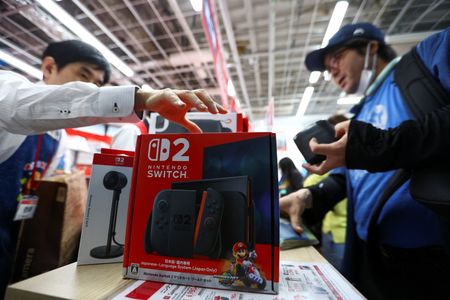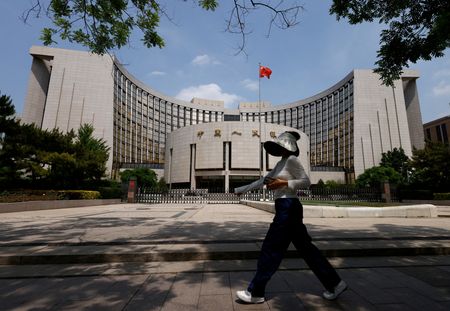TOKYO (Reuters) -Japan’s manufacturing activity shrank in July after briefly stabilising in the previous month as weak demand pulled production back into contraction, a private sector survey showed on Friday.
The S&P Global Japan manufacturing purchasing managers’ index (PMI) fell to 48.9 in July from 50.1 in June, dropping below the 50.0 threshold that separates growth from contraction. The PMI was little changed from the flash reading of 48.8.
Most of the survey data was collected before the announcement of a Japan-U.S. trade agreement last week, which lowers tariffs imposed on Japan to 15% from a previously threatened 25%.
As the trade deal with Washington kicks in, “it will be important to see if this will translate into greater client confidence and improved sales in the months ahead,” said Annabel Fiddes, economics associate director at S&P Global Market Intelligence, which compiles the survey.
The key sub-index of output fell back into contraction and at the sharpest pace since March. Companies widely reported reducing production due to lower volumes of new business, according to the survey.
New orders shrank again in July, though at a slightly slower pace than in June.
Despite falling production and orders, manufacturers continued to increase staffing in July, though the pace of job creation slowed to a three-month low.
On the price front, input cost inflation eased to its lowest in four-and-a-half years, while output prices rose at the fastest rate in a year as firms passed on higher costs to customers.
Business confidence improved to a six-month high in July, with firms expecting improved demand conditions and reduced trade-related uncertainty to support growth over the next year.
(Reporting by Kaori Kaneko; Editing by Sam Holmes)

